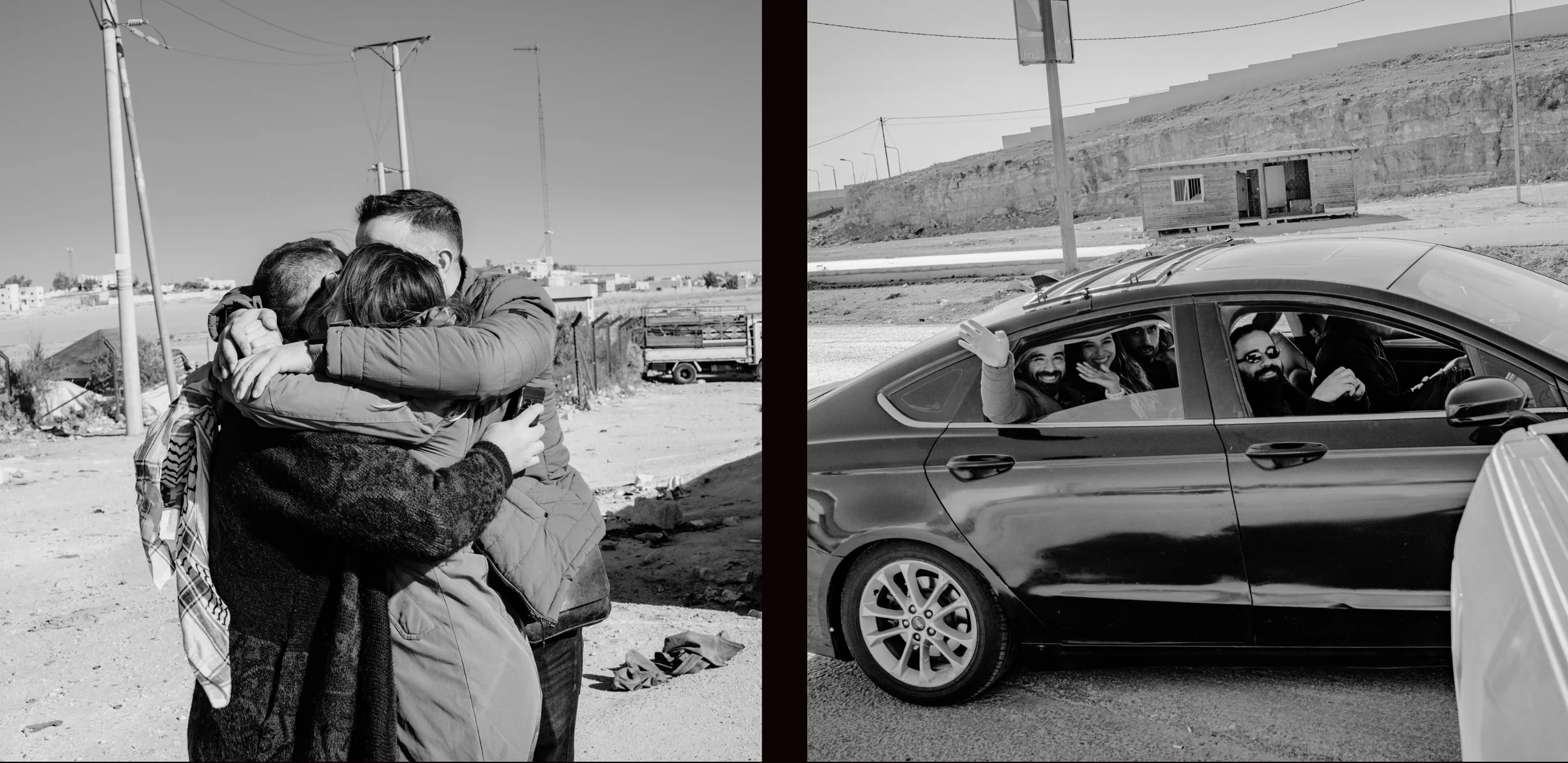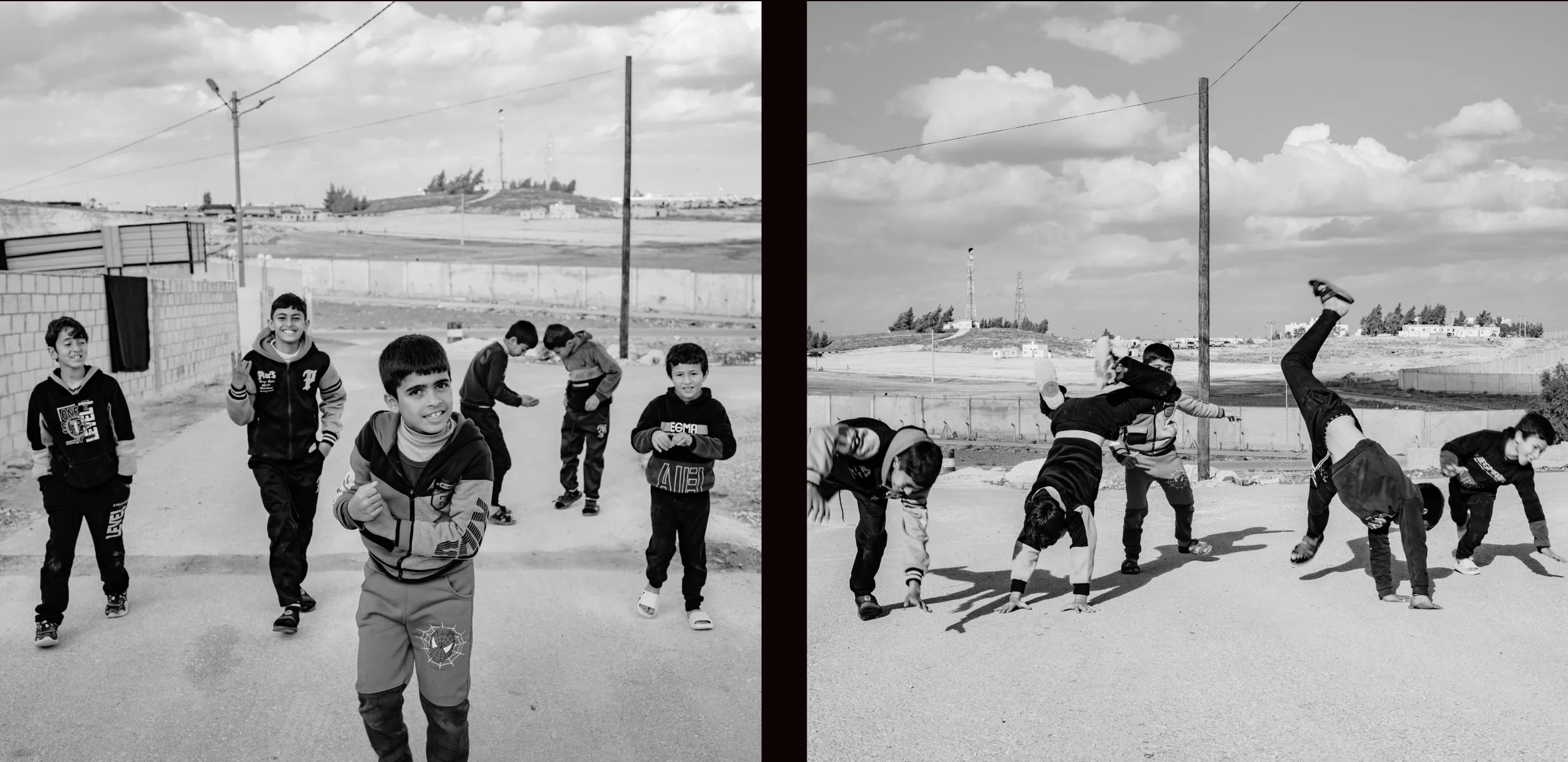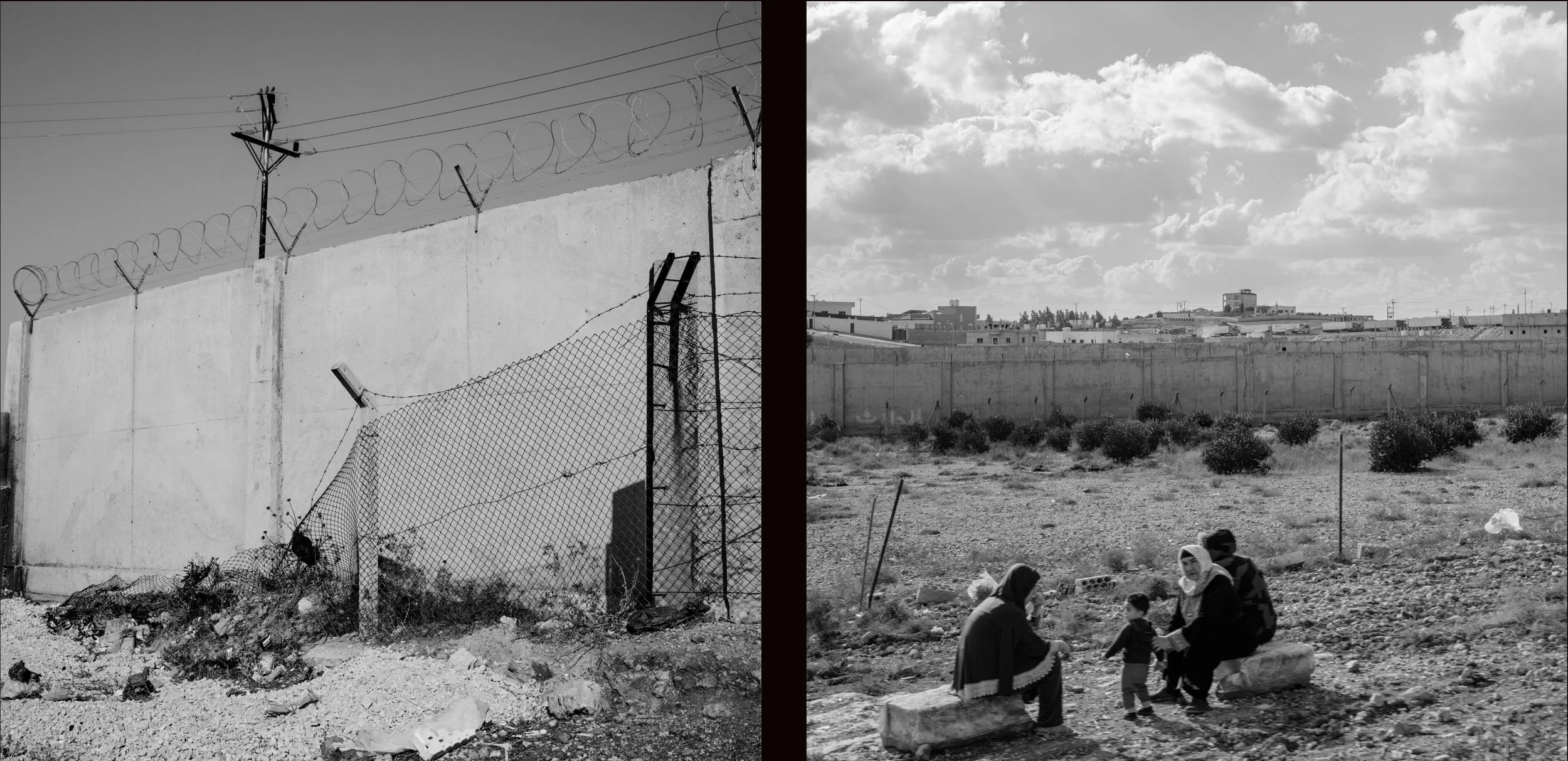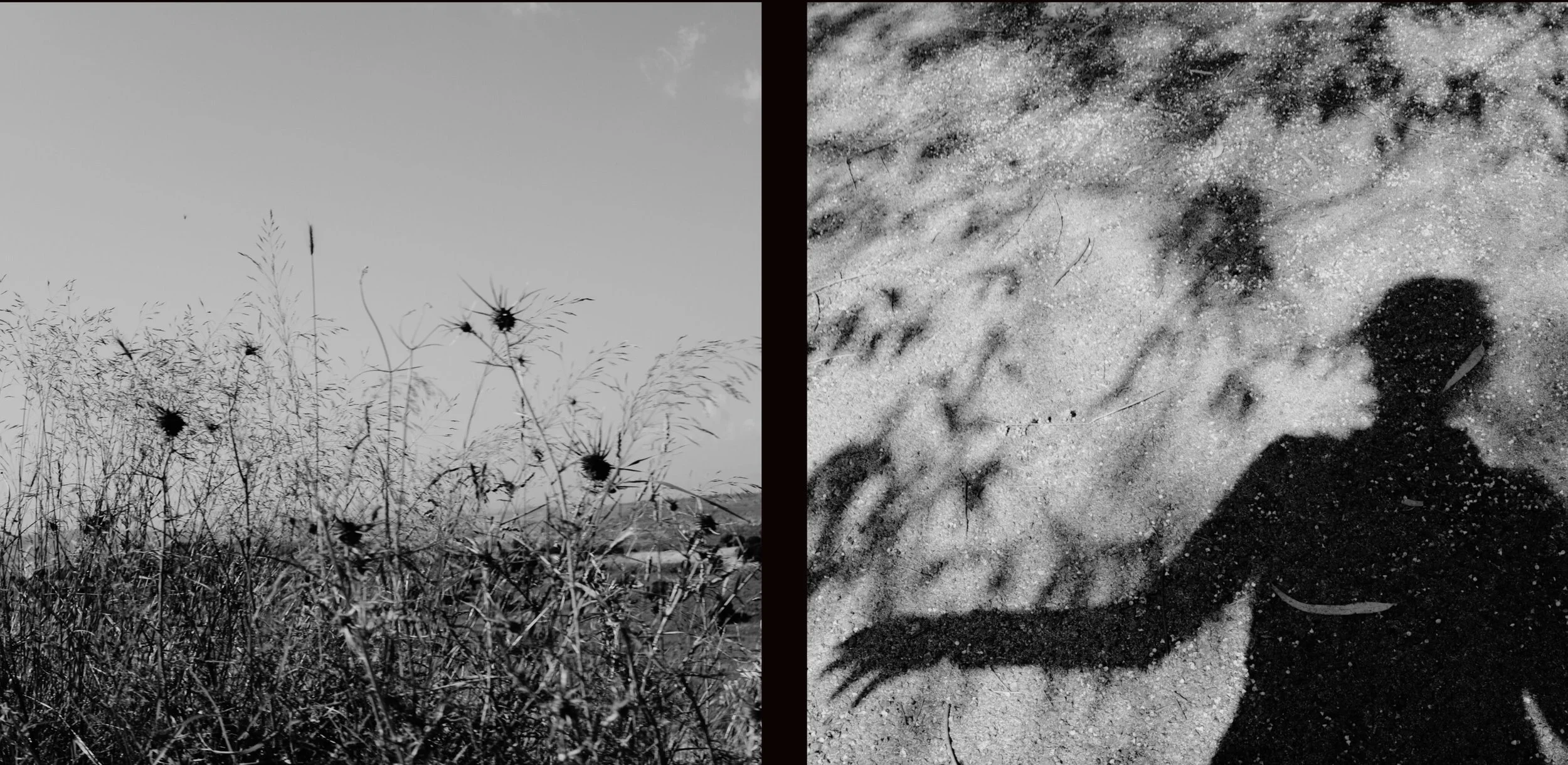
To Visit My Home, I Visit Its Border

Photographs and text by Sara Kontar
Ms. Kontar is a photographer and Syrian refugee.
On the edge of my homeland, a line of cars stretched before me, with people’s faces peering out. They were about to return — their bags packed, stacked high on their cars — to a Syria I have never known: a Syria with no Assad regime.

A group of children playing near the border chased after us, yelling, “Syrians! Syrians!” Some of them were refugees, too. I asked if they were going to go back. After the school year, they answered.

The houses and small villages on the Jordanian side of the border look almost identical to those in southern Syria, where I grew up. What if there were no border between us? In 10 minutes, I’d be standing on my soil. If I continued for an hour and a half, I’d be home, where I’d embrace my father and embrace my grandmother in her home — a home I haven’t set foot in for nine years.

Scattered across borders, Syrians carry their stories with them. I still remember the first cries for freedom in 2011 and how they were met with violence and death, arrests, sieges, hunger, bombings and forced displacement. I remember how factions divided, how the revolution became armed and how foreign interests intervened. Everything grew more tangled until the stench of death suffocated us, and ruin and chaos spread. People fled. And eventually, so did I.
In late 2015, I crossed 10 borders, over 2,500 miles of land and sea, to reach France, where I live today in exile. While the government has announced some Syrian refugees can now return, my refugee paperwork says I can’t go back. I worry if I return to my country, I could lose my right to live in France, where I’ve spent the past nine years rebuilding my life. I feel like a stranger with no homeland. It’s as if I leaped from one edge toward another but never landed, suspended in midair.
So instead, I visit the edges of my country. Before I went to Jordan weeks after the fall of the Assad regime, the closest I had been was in Lebanon, where my father went from Syria to see me, after seven years apart. His face had new lines, etched by time. Being with him, I felt light, momentarily freed from a burden I hadn’t realized I was carrying.
Standing so close to Syria, I am taunted by the border between us. Why, after all the years away, does this land pull me toward it in ways I can’t explain?

When I was younger, my father would tell me of his travels abroad. He would always end his stories by saying, “And I returned to live among the stones of my village.” I didn’t understand those words back then. But the phrase came rushing back to me when I took these photographs, my attempts at touching Syria, touching my home.
See the full project on nyt.com